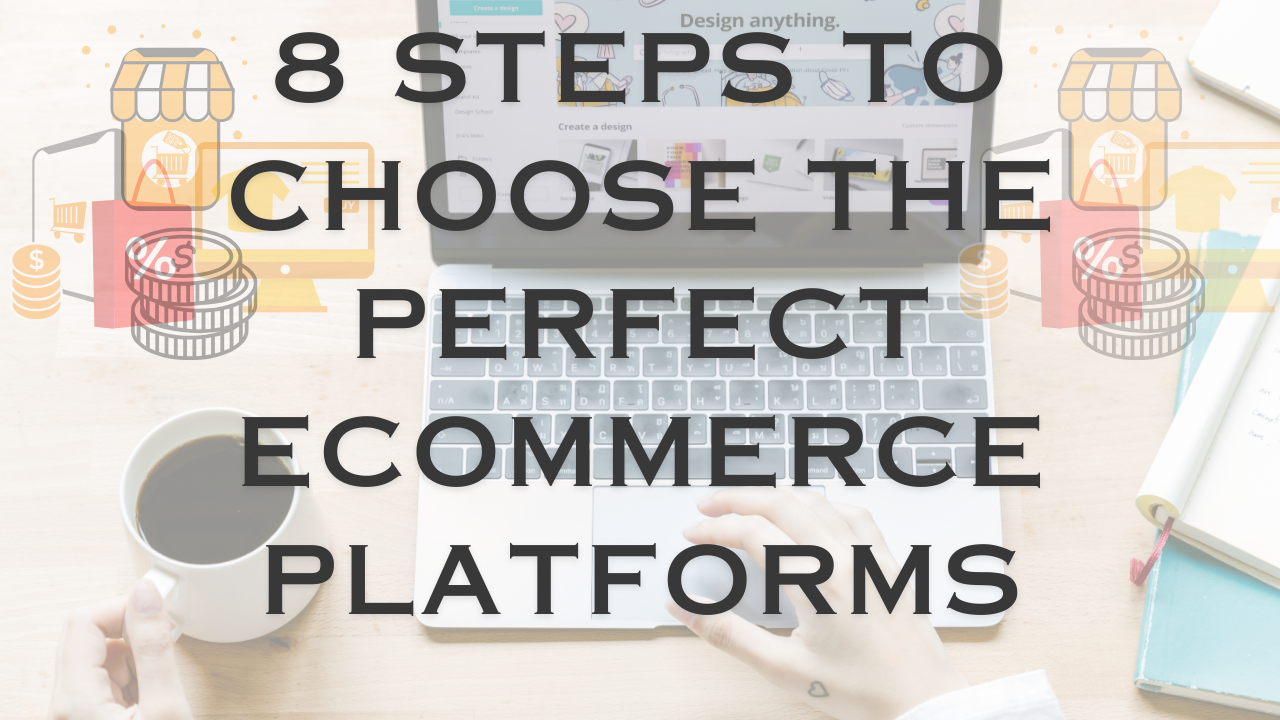In today’s fast-paced digital landscape, establishing an online presence is vital for businesses of all sizes. Whether you’re a budding entrepreneur or a seasoned enterprise, venturing into the world of ecommerce offers unprecedented opportunities to reach a global audience, drive sales, and foster brand loyalty. However, with a myriad of ecommerce platforms available, selecting the ideal one for your business can be a daunting task. Fear not! In this comprehensive guide, we’ll delve deep into the process of choosing the perfect ecommerce platform to suit your unique needs and aspirations.
1. Understanding Your Business Needs for Online Business

Before embarking on your ecommerce journey, it’s essential to take a step back and thoroughly assess your business needs, objectives, and long-term goals. Begin by evaluating your product offerings—are you selling physical goods, digital downloads, or services? Next, consider your target audience, niche market, and competitive landscape. Are you catering to tech-savvy millennials or budget-conscious families? By gaining clarity on these fundamental aspects, you’ll be better equipped to narrow down your options and select a platform that aligns seamlessly with your business vision.
2. Budget Considerations for Ecommerce Platforms
Budgetary constraints play a pivotal role in the selection process of an ecommerce platform. While it may be tempting to opt for the most cost-effective solution, it’s imperative to strike a balance between affordability and functionality. Some platforms offer tiered pricing plans, with basic packages tailored for startups and more comprehensive plans catering to established businesses. Consider your budgetary constraints and assess the value proposition offered by each platform. Remember, investing in a robust ecommerce platform can yield substantial returns in terms of scalability, performance, and customer satisfaction.
3. Ease of Use and Customization for Online Store
Navigating the complexities of an ecommerce platform should be intuitive and seamless, even for novice users. Look for platforms that offer user-friendly interfaces, drag-and-drop functionality, and customizable templates to simplify the setup and management of your online store. Additionally, explore the platform’s customization options—are you able to personalize the design, layout, and branding elements to reflect your unique identity? A flexible and adaptable platform will empower you to unleash your creativity and differentiate your brand in a competitive marketplace.
4. Scalability and Growth Potential of Ecommerce Platforms

As your business expands and evolves, so too should your ecommerce platform. Scalability is paramount, ensuring that your platform can accommodate increased traffic, product offerings, and sales volume without compromising performance or user experience. Evaluate the platform’s scalability features, such as robust infrastructure, scalable hosting options, and seamless integration with third-party applications. A scalable ecommerce platform lays the foundation for sustainable growth and positions your business for long-term success in a dynamic digital landscape.
5. Technical Support and Resources for Digital Marketing
In the world of ecommerce, technical glitches and challenges are inevitable. When evaluating potential platforms, prioritize those that offer comprehensive technical support and resources to assist you every step of the way. Look for platforms with dedicated customer support teams, extensive documentation, video tutorials, and community forums where you can seek guidance and troubleshooting assistance. Additionally, assess the platform’s commitment to innovation and continuous improvement—do they regularly release updates, patches, and new features to enhance your ecommerce experience?
6. Integration with Third-Party Tools for Online Business
No ecommerce platform operates in isolation—seamless integration with third-party tools and services is essential for optimizing your business operations and enhancing customer engagement. Consider the platform’s compatibility with popular tools and services such as payment gateways, shipping carriers, accounting software, and marketing automation platforms. A robust ecosystem of integrations and APIs enables you to streamline your workflows, automate repetitive tasks, and leverage data-driven insights to drive growth and profitability.
7. Security and Compliance for Ecommerce Platforms

Security is paramount in the realm of ecommerce, safeguarding your business and protecting sensitive customer data from potential threats and vulnerabilities. Prioritize platforms that adhere to industry best practices and compliance standards, such as PCI DSS (Payment Card Industry Data Security Standard) for handling payment information. Look for features such as SSL encryption, secure payment gateways, and proactive security measures to mitigate risks and build trust with your customers. Additionally, assess the platform’s commitment to regulatory compliance and data protection, particularly if you operate in highly regulated industries or regions.
8. Choosing the Right Ecommerce Platform

In conclusion, selecting the right ecommerce platform is a pivotal decision that can shape the trajectory of your online business. By carefully considering factors such as your budget, business needs, ease of use, scalability, technical support, integration capabilities, and security, you can make an informed choice that lays the groundwork for sustainable growth and success. Take the time to research your options, explore demos and free trials, and seek recommendations from industry peers and experts. With the right ecommerce platform as your foundation, you’ll be well-positioned to build a thriving online business that captivates customers, drives sales, and propels your brand to new heights in the digital marketplace.
Lastly, we recommend watching this YouTube video that offers valuable insights into understanding business needs for ecommerce success. Click here.
If you’re interested in delving deeper into crafting a #1 effective ecommerce website, feel free to check out our related blog article here.

No responses yet